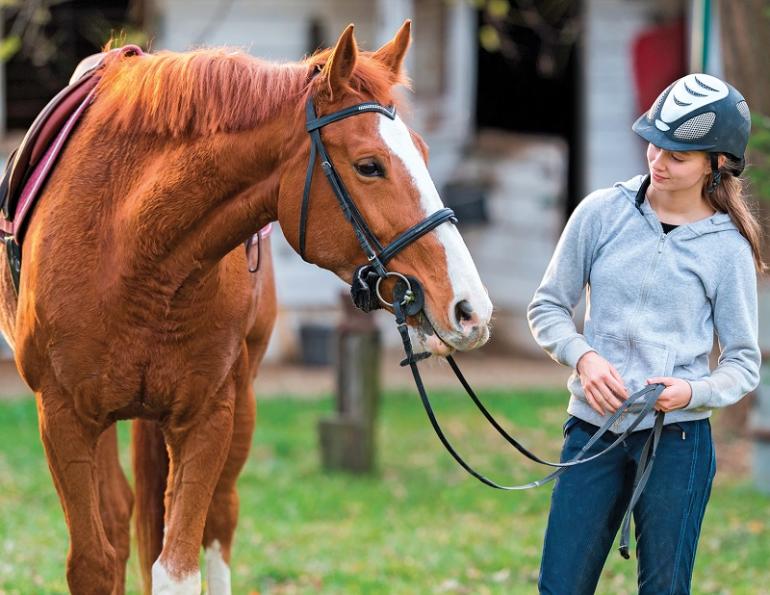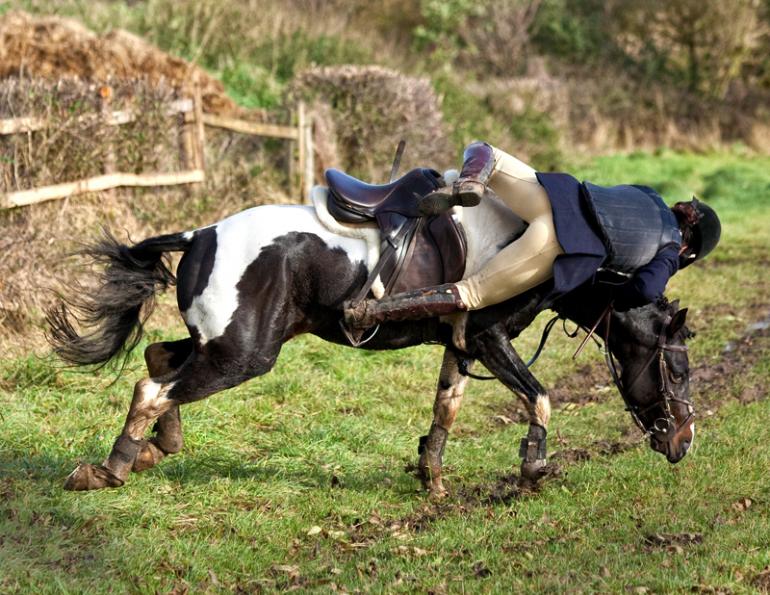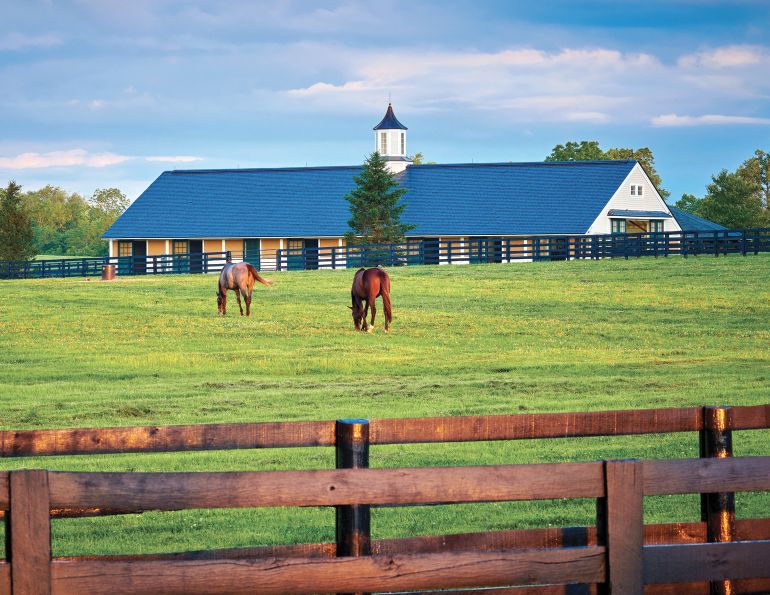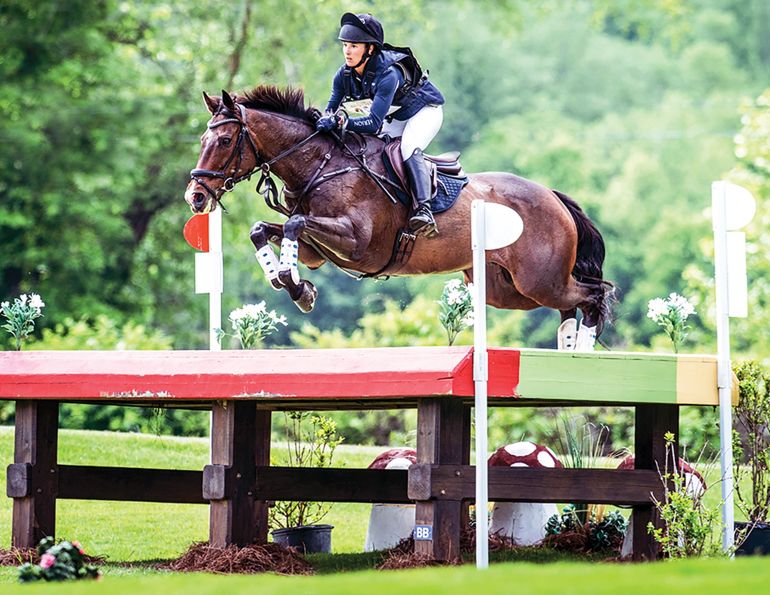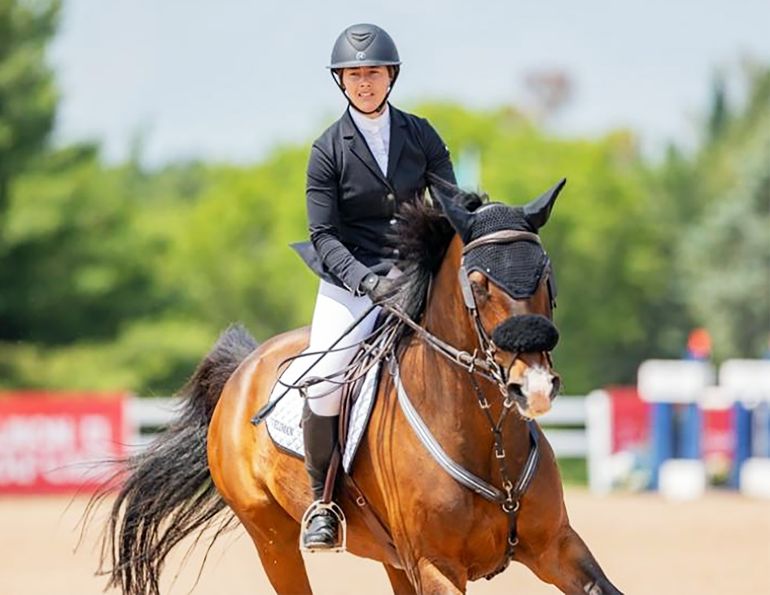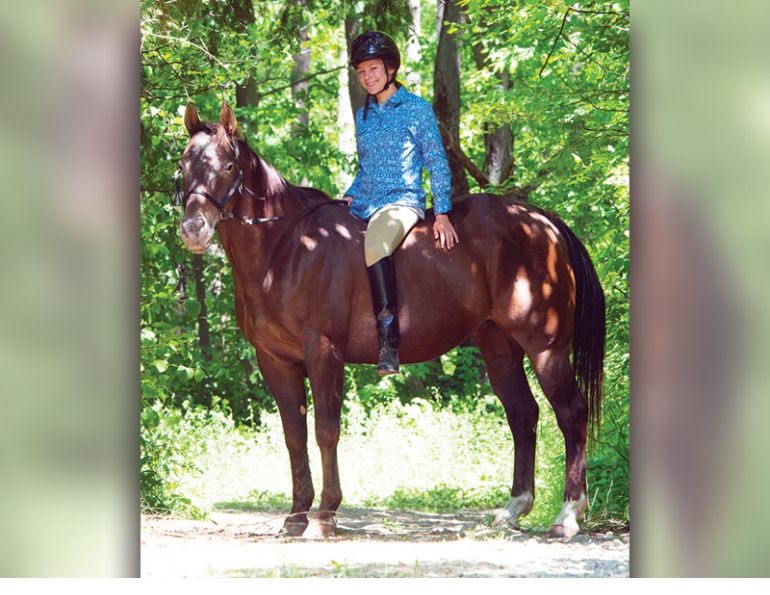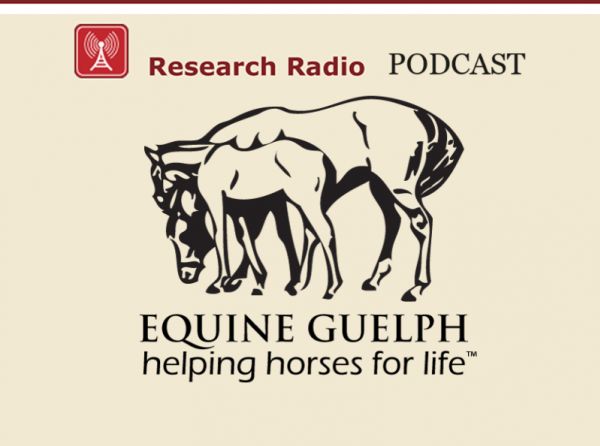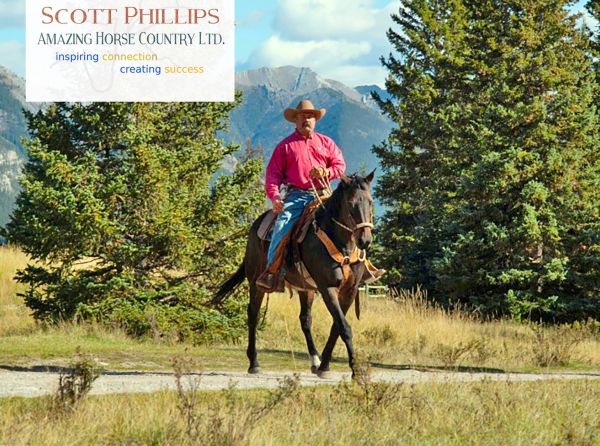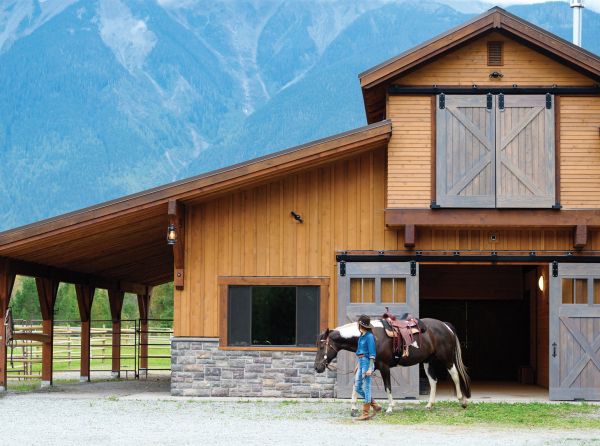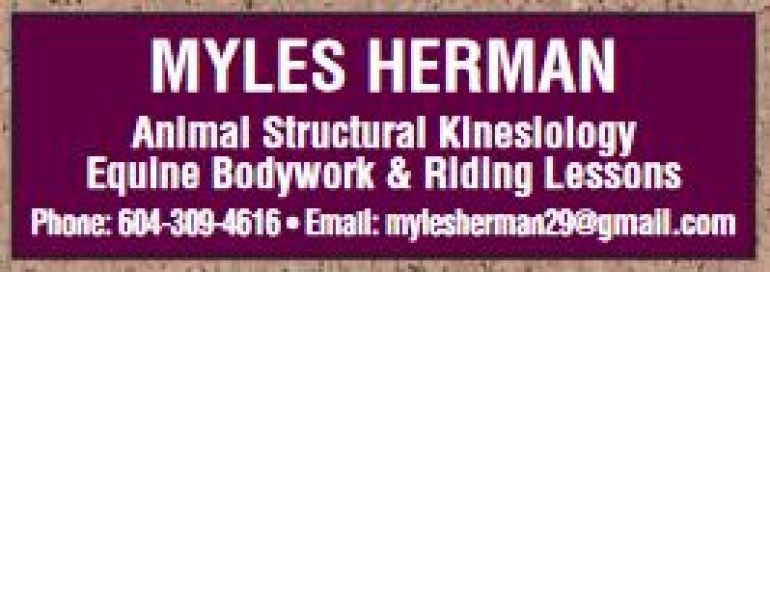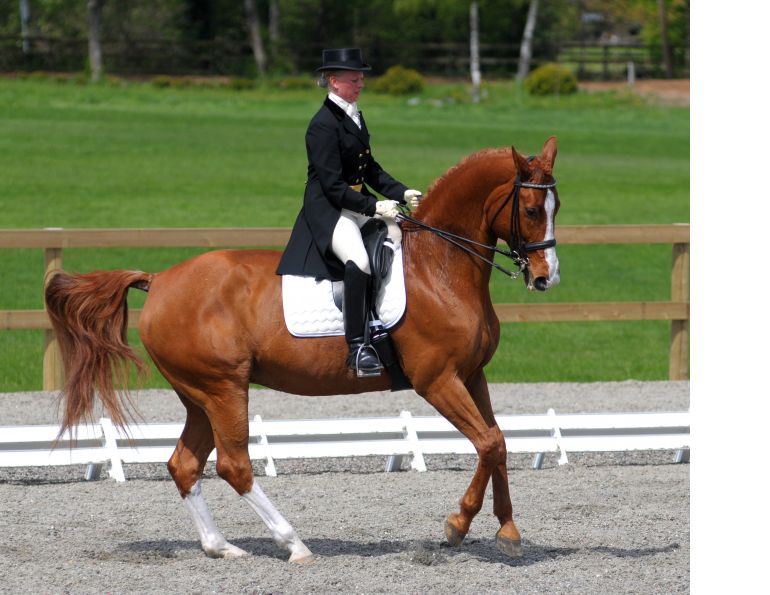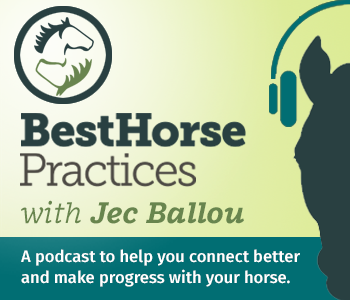By Annika McGivern, BA Psychology, MSc Sport and Exercise Psychology
In my work as an equestrian sport psychology coach, I spend a lot of time talking with riders about guilt. It seems that we riders experience a lot of guilt in response to an amazing variety of circumstances.
No one reading this article is unacquainted with this feeling, but let’s look at the actual definition. Guilt is defined as a sense of unease, regret, and responsibility in connection with our actions. Usually, our experience of guilt can be traced back to a sense of having not lived up to expectations in some way. The expectations in our lives can be shaped by our circumstances, our families, and our jobs. However, more commonly than we realise, the expectations that cause us the most trouble come from ourselves. As a negative emotion, guilt will always reduce our ability to focus and perform. When we are caught up and distracted by feelings of guilt, anger, shame, or frustration, we become less likely to push ourselves, unable to focus, and less able to recover quickly when something goes wrong. Learning to manage our guilt limits this influence, helps us to reach our goals faster, and allows us to experience less emotional turmoil along the way.
Two types of guilt
There are two types of guilt: helpful and unhelpful. We experience helpful guilt when we have behaved inappropriately. This type of guilt has the potential to help by serving as a signal that there is something we need to pay attention to and improve about ourselves. If we lash out unfairly at a friend and feel guilty afterwards, that guilt raises our awareness that something needs to change. Perhaps we need to practice regulating our emotions and reactions. However, this guilt is only truly helpful if we use it as inspiration to take action and make real changes around our behaviour. Nurturing your guilt while taking no steps to rectify the situation and improve your emotional regulation helps nobody, and it can also cause you to miss an important opportunity for personal learning and growth.

Helpful guilt raises our self-awareness and can be used as inspiration for improvement. Photo: Shutterstock/AnnaElizabeth Photography
Unhelpful guilt is usually experienced in a way that doesn’t make a lot of sense. For example, we may feel guilty when our friend’s horse is repeatedly lame, and our horse is consistently sound. Although the situation with our friend’s horse is completely beyond our control, the guilt appears anyway. Similarly, riders commonly feel guilty every time they make a mistake that impacts their horse. However, there is no way to prevent ourselves from making mistakes. Mistakes are beyond our control, and so guilt is not a useful reaction. Unhelpful guilt is dangerous, because it impacts our well-being negatively, holds no real opportunity for personal growth, and impairs our performance.
Related: Princess Complex - The Spoiled Horse

To overcome unhelpful guilt we must learn to pay attention to our internal voice and challenge our unrealistic expectations. Photo: Shutterstock/Sychov Serhil
Let’s look at some common sources of unhelpful guilt and what we can do to challenge this limiting emotion.
Something I see time and time again (and have personally experienced) is riders suffering from guilt because of unrealistic, self-imposed expectations. These expectations are often linked to our belief systems around what it means to be a good rider. Because these belief systems and self-imposed expectations are usually subconscious, we first must make them conscious by paying more attention to them. Listen to what your internal voice is saying.

Do these expectations feel familiar?
Imagine two different riders. One rider holds herself to impossible standards and berates herself every time she doesn’t reach those expectations. As she fails to meet these impossible standards over and over, she takes this as evidence that she just isn’t good enough. The guilt becomes overwhelming and this rider’s enjoyment of and performance in her sport is seriously impacted. Now, think back to helpful and unhelpful guilt. Which do you think is affecting this person? Because no one has 100 percent control over their motivation or the challenges that come their way, or how many mistakes they make, or how other people perceive them, this guilt is unhelpful. There is no way for this rider to solve the problem of her guilt as long as she continues to set unrealistic expectations.
Our second rider also sets big goals for herself, but she sets more realistic expectations of what the journey towards those goals is going to be like. She expects to struggle, to meet challenges, and to experience varying levels of motivation. She expects to make mistakes, even fail at points along the way. She expects to learn to manage these mistakes and difficult times better as a result of this journey. As she meets challenges, makes mistakes, and learns from them, this rider becomes increasingly skilled at managing her mistakes. She is able to meet her own expectations again and again, and build evidence that she has the ability to consistency grow and improve. This rider’s enjoyment of her sport increases and her performance steadily improves. Does our second rider still feel guilt sometimes? Of course. This rider might feel guilty if she fails to manage herself well in response to a mistake. However, because she has 100 percent control over her own response to her mistake, this guilt is helpful and serves as a reminder to push herself to grow. However, the guilt is only truly helpful if this rider takes action to improve her management of her mistakes as a result.
Related: How to Maximize the Benefits of Our Connection with Horses
We have a choice. Which rider will we choose to be? We can continue to tell ourselves that we should always be motivated, that we shouldn’t make mistakes or struggle along the way, and continue to feel guilt and other negative emotions when our reality doesn’t measure up to those expectations. Or we can choose to adjust our expectations of what it means to be a successful equestrian. Our guilt will always relate back to our expectations. The secret is not to lower expectations, but simply adjust them to be more aligned with reality, and less aligned with our inner perfectionism.
Changing how you manage your guilt takes awareness and daily practice. The first step is to be more curious about your guilty feelings and think about where that guilt is coming from, or what action it is connected to. If you are feeling guilty about something that you can control, such as your own behaviour and reactions, this is probably helpful guilt. Use this guilt as a sign that you have an opportunity to improve something about yourself. Do the work, make sincere amends if necessary, and then let the guilt go. Once you have taken action, the guilt is no longer helpful.
If you are feeling guilty about something you don’t have any control over, then it is probably unhelpful guilt. Use this guilt as a sign that you need to look at your expectations for yourself and perhaps make a few adjustments. Remind yourself that mistakes and failures are how we learn, and that there is no way to become a great rider without them. Remember that you can set big, exciting goals for yourself and hold realistic expectations about the process of achieving them. The secret is that by beating ourselves up less, and having more compassion and patience with ourselves, we move towards our goals faster. From a place of self-compassion, we are able to focus, apply effort, and recover quickly from setbacks. Through self-compassion we find the key ingredients for steady, consistent improvement.
Photo: Shutterstock/Fotokostic



